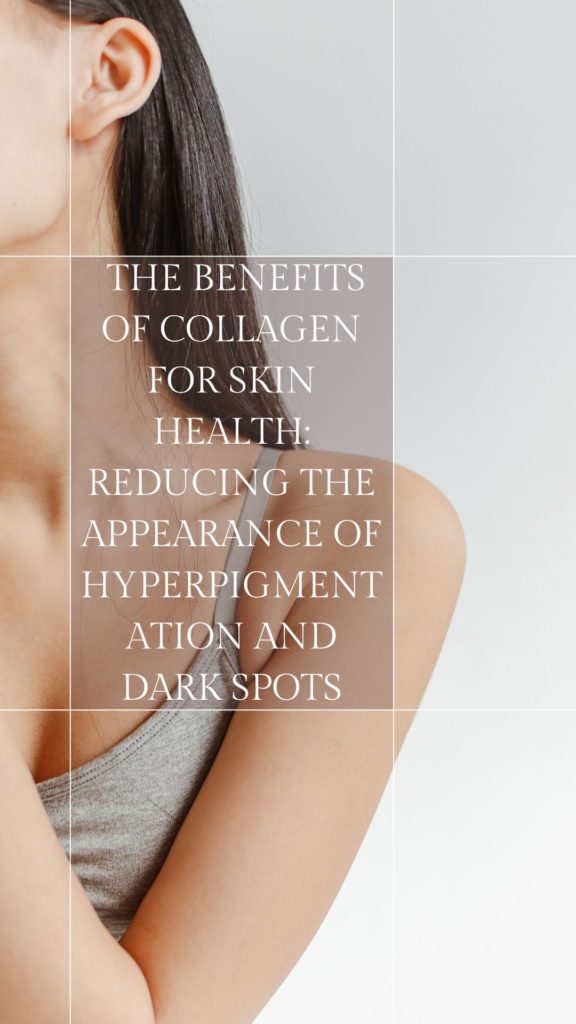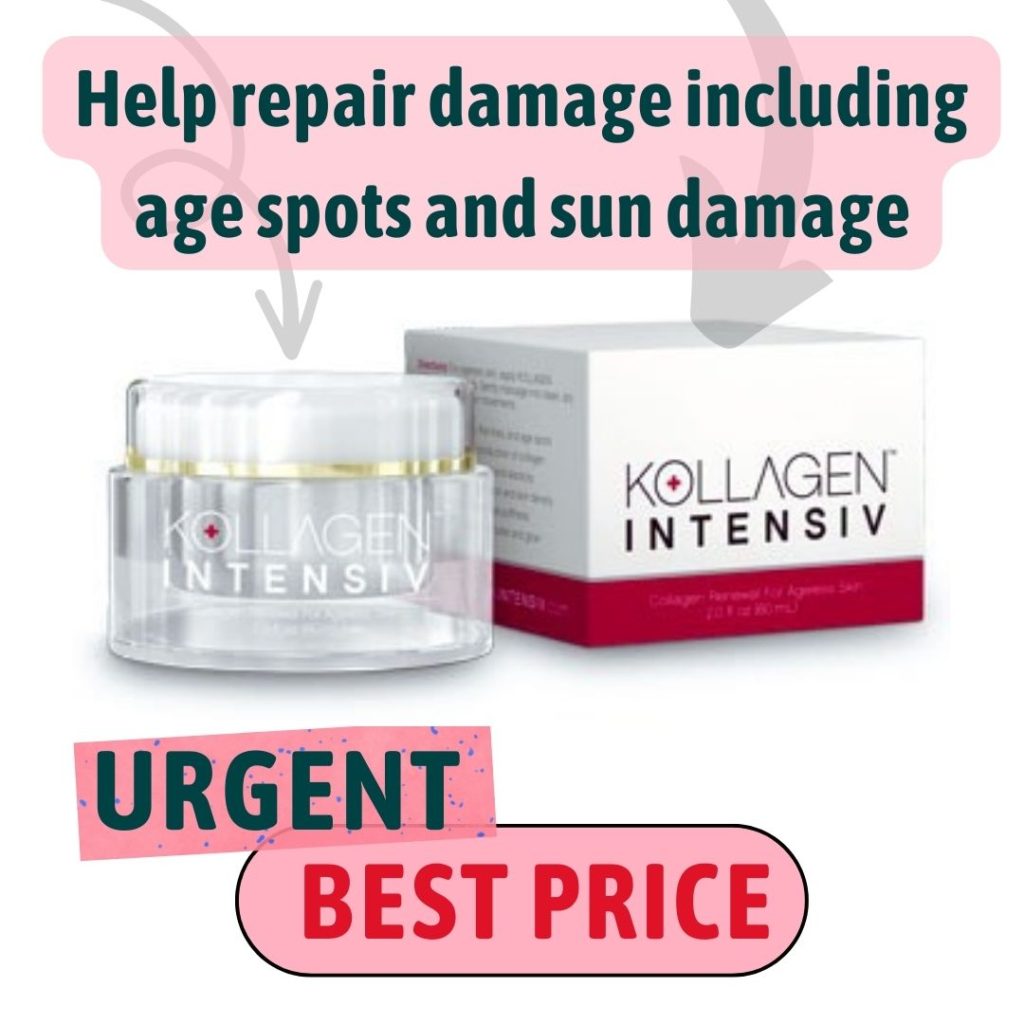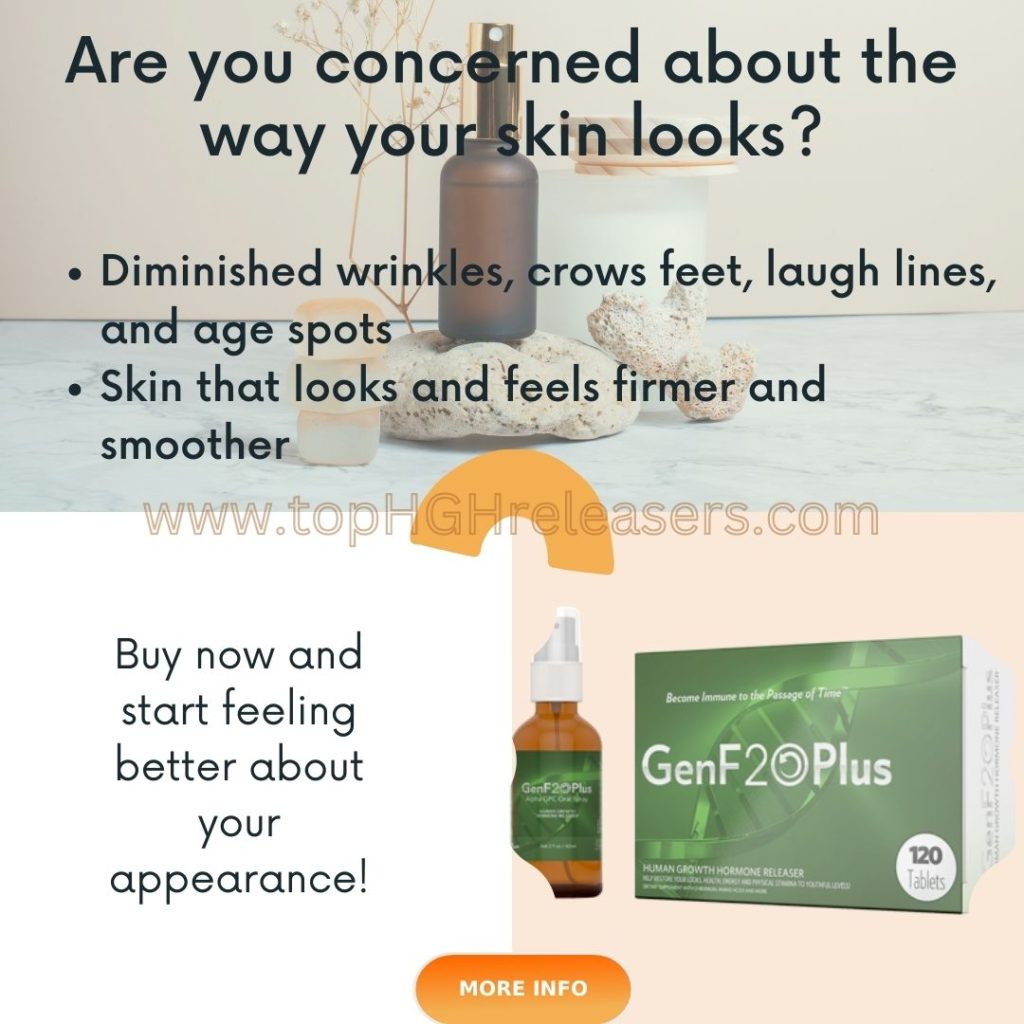Have you been looking for a way to diminish the look of dark spots? You might have heard that collagen could be helpful. But what is it, really? Does it do what they say? In this post, we’ll go over everything you need to know about collagen and how it can help with dark spots.

Are you concerned about hyperpigmentation on your skin? You’re not alone. Many people are seeking ways to lighten dark spots on their skin. While there are a number of topical treatments available, you may want to consider hydrolyzed collagen as a way to reduce the appearance of hyperpigmentation. Here’s what you need to know.
Contents
- 1 What is Hyperpigmentation?
- 2 The Role of Collagen in Skin Health and What is Hydrolyzed Collagen?
- 3 Benefits of Hydrolyzed Collagen for Skin
- 4 Impact of Hydrolyzed Collagen on Melasma / Age Spots
- 5 How to Use Collagen for Dark Spots
- 6 The Best Collagen Supplements for Dark Spots?
- 7 Does collagen help in pigmentation?
- 8 Does collagen reduce spots?
- 9 What vitamins get rid of dark spots?
- 10 Does collagen helps brighten skin?
- 11 Home Remedies for Reducing the Appearance of Dark Spots
- 12 Conclusion:
What is Hyperpigmentation?
Hyperpigmentation is the darkening of an area of skin due to an overproduction of melanin. Melanin is the pigment that gives skin its color.
Sun damage, hormone imbalances, certain medications, aging, and other factors can cause an overproduction of melanin. When people talk about “age spots,” they are usually referring to areas of hyperpigmentation.
The Role of Collagen in Skin Health and What is Hydrolyzed Collagen?
Collagen is a type of protein that is found in our skin, muscles, and connective tissue. As we age, our bodies produce less collagen, which can lead to wrinkles and sagging skin. Hydrolyzed collagen is collagen that has been broken down into smaller peptides that are easier for the body to absorb.
Hydrolyzed collagen supplements have become popular in recent years as a way to improve joint health, bone density, and gut health. But what about the impact of hydrolyzed collagen on skin health?
Benefits of Hydrolyzed Collagen for Skin
Recent studies have shown that hydrolyzed collagen can improve skin elasticity and hydration while reducing inflammation. Hydrolyzed collagen also helps to rebuild the extracellular matrix—the framework that provides structure and support for our cells.
This is important because the extracellular matrix begins to break down as we age, leading to wrinkles and sagging skin. By replenishing the extracellular matrix with hydrolyzed collagen, we can help reduce the signs of aging. In addition, hydrolyzed collagen has been shown to reduce cell damage caused by UV exposure.
Reduces Fine Lines and Wrinkles
One of the primary benefits of hydrolyzed collagen for skin is that it can help to reduce the appearance of fine lines and wrinkles. Collagen is a protein that helps to keep the skin firm and elastic.
As we age, our bodies produce less collagen, which can lead to the formation of fine lines and wrinkles. Hydrolyzed collagen can help to replenish the collagen in the skin, resulting in a reduction in the appearance of fine lines and wrinkles.
Improves Skin Elasticity
Hydrolyzed collagen can also help to improve skin elasticity. Collagen plays an important role in keeping the skin firm and elastic. As we age, our bodies produce less collagen, which can decrease skin elasticity. Hydrolyzed collagen can help to replenish the collagen in the skin, resulting in improved skin elasticity.
Increases Collagen Production
In addition to replenishing the collagen in the skin, hydrolyzed collagen can also help to increase collagen production. Collagen is a protein that helps to keep the skin firm and elastic. As we age, our bodies produce less collagen, which could decrease skin firmness and elasticity. Hydrolyzed collagen can help to stimulate collagen production, resulting in increased collagen levels and improved skin health.
https://pubmed.ncbi.nlm.nih.gov/30681787/
Impact of Hydrolyzed Collagen on Melasma / Age Spots
Melasma is a type of hyperpigmentation that occurs when there is an overproduction of melanin in the skin. It often appears as patches of dark brown or greyish-brown discoloration on the face, particularly on the cheeks, forehead, nose, and upper lip. Melasma can also be triggered by sun exposure. While melasma is not harmful, it can be cosmetically unappealing and cause feelings of self-consciousness.
Researchers have recently turned to the potential impact of collagen protein on melasma. Collagen is known for its ability to increase hydration, improve elasticity, and enhance texture in the skin, in addition to reducing wrinkles. Studies have now also shown that collagen can help with melasma management as well.
Collagen helps the basement membrane regain optimal levels, thereby reducing the effects of photoaging such as wrinkling, laxity, and thickening of the skin, as well as pigmentation which are common among individuals with this condition.
Supplements containing hydrolyzed collagen can therefore be incredibly useful in minimizing negative impacts associated with melasma. With more research being done into how best utilizing this nutrient can help maintain healthy and vibrant skin over time, the possibilities could be endless!
https://www.ncbi.nlm.nih.gov/pmc/articles/PMC3866733/
Oral Collagen Supplementation: A Systematic Review of Dermatological Applications – PubMed (nih.gov)
https://pubmed.ncbi.nlm.nih.gov/30681787/
How to Use Collagen for Dark Spots
If you’re interested in using collagen for dark spots, there are a few different options available to you. You can find collagen supplements in most health food stores or online. There are also many collagen creams and serums on the market that can be applied directly to problem areas.
When using collagen for dark spots, it’s important to be consistent with your regimen. Try to incorporate a daily collagen supplement into your diet, and apply topical creams or serums twice per day for best results. As always, it’s important to speak with your dermatologist before using any new skincare product or supplement.
The Best Collagen Supplements for Dark Spots?
Here is our favorite collagen supplement for dark spots:
Kollagen Intensiv is a luxurious collagen supplement that helps reduce the appearance of wrinkles, fine lines, and age spots. It also firms and tones the skin for a more youthful appearance.
With regular use, you can expect to see a visible reduction in the signs of aging on your skin. Kollagen Intensiv is formulated with the patented peptide SYN-COLL, which has been clinically proven to increase collagen production and reduce the appearance of wrinkles.
Are you worried about wrinkles, age spots, or other skin concerns that come with getting older?
GenF20 Plus is a unique supplement that can help reduce the appearance of wrinkles, fine lines, and age spots. With regular use, you can expect to see firmer, more elastic skin with a more even complexion.
You deserve to feel confident in your own skin. With GenF20 Plus, you can have the youthful appearance you’ve been wanting without expensive procedures or surgery. Try it for yourself and see the difference!
Kollagen Intensiv combined with this anti-aging supplement GenF20 Plus is your ticket to good-looking skin.
Does collagen help in pigmentation?
Yes, collagen helps in pigmentation.
Does collagen reduce spots?
Yes, collagen reduces spots.
What vitamins get rid of dark spots?
Vitamins A, C, and E help get rid of dark spots.
Check out our article to learn more.
Does collagen helps brighten skin?
Collagen helps brighten skin by increasing the production of natural melanin. It can also help improve the skin’s natural glow and reduce wrinkles.
Additionally, collagen helps to maintain moisture in the skin, which can prevent dark spots from appearing. It can also reduce inflammation and redness while providing anti-aging benefits. So, yes, collagen does help to brighten skin.
Home Remedies for Reducing the Appearance of Dark Spots
If you’re not interested in using supplements or topical treatments, there are also several home remedies that have been shown to be effective in reducing the appearance of dark spots. Below are some of our favorites:
- Apple cider vinegar: Apple cider vinegar contains acetic acid, which has been shown to lighten dark spots.
To use, mix equal parts apple cider vinegar and water and apply directly to the problem areas with a cotton ball. Rinse after 10 minutes with warm water.
- Banana peel: The enzymes present in banana peels can help fade dark spots over time.
To use, rub a piece of banana peel over the problem areas before going to bed and rinse off in the morning. Repeat daily until desired results are achieved.
- Potato slices: Potatoes contain an enzyme called catecholase, which has bleaching properties. To use, cut thin slices of potato and apply directly to problem areas.
Leave on for 10-15 minutes before rinsing with water. Repeat 2-3 times per week until desired results are achieved.
Conclusion:
The benefits of using hydrolyzed collagen for skin health are many—including reducing the appearance of hyperpigmentation! If you’re looking for an alternative to traditional medical treatments such as topical medications or laser therapy, consider oral supplementation with hydrolyzed collagen peptides.
If you’re looking for a way to reduce the appearance of dark spots, you may want to consider trying Collagen. Collagen has been shown to be effective in reducing the size and darkness of dark spots. It’s available in supplement form or as a topical treatment, so you can choose the option that best suits your needs. There are also several home remedies that can help fade away dark spots over time. Give them a try and see for yourself which ones are best!


Leave a Reply